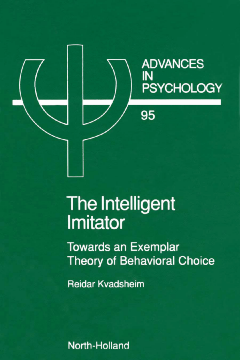
Additional Information
Book Details
Abstract
This monograph presents a novel conceptual framework for the study of human social behavior with potentially far-reaching implications. Owing to the role it accords to stored memory representations of observed occurrences (examples) of actions, the proposed framework is referred to as the Exemplar Choice Theory, or ECT. The theory links perception and action and combines an expectancy-value perspective on choice behavior, with features of recent exemplar-based approaches to the study of human information processing. It addresses the influence of social models, as well as the impact of past action consequences and differs from extant theories of instrumental learning.
The volume focuses on two extreme classes of conditions defined in terms of the actor's limited access to information and discusses available evidence from many areas of psychology. Its structure is as follows: the introductory chapter locates the proposed theory within a historical context; this is followed by an overview of the main structure of the conceptual framework; subsequently, general propositions are presented and discussed in detail; later, empirical implications are derived for certain extreme classes of choice conditions and considered in the light of empirical evidence.
It is hoped the publication will inspire students and researchers of psychology, biology, zoology and of many social sciences, including sociology, anthropology, decision research, marketing, economics, cognitive science and mass media studies to undertake further research and to reconsider existing data and frameworks.
